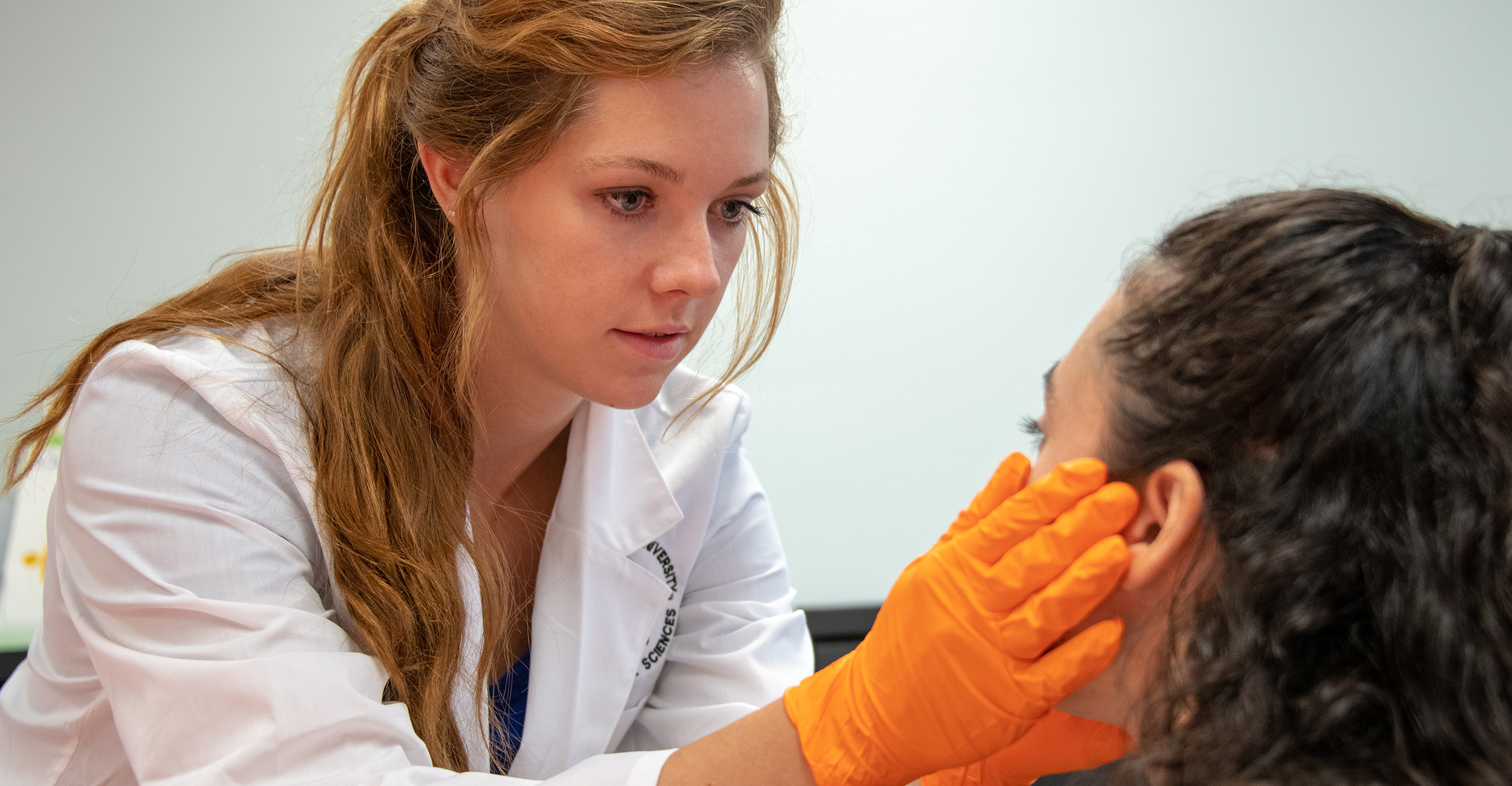
Dietetics First-Year Guarantee sets path to graduate school and beyond
Friday, February 23, 2024
Media Contact: Christy Lang | Manager, Marketing & Communications | 405-744-9740 | christy.lang@okstate.edu
The path to becoming a dietitian is a little easier for dedicated first-year students in Oklahoma State University’s nutritional sciences program.
The Department of Nutritional Sciences’ First-Year Guarantee Program (FYG) allows first-year students majoring in nutritional sciences with an option in dietetics to apply for assured admission to OSU’s master’s programs in nutritional sciences.
As of Jan. 1, 2024, students must earn a master’s degree before taking the Commission on Dietetic Registration’s exam to become a Registered Dietitian Nutritionist (RD or RDN). With the new requirement, associate professor Dr. Jill Joyce said the Department of Nutritional Sciences created the First-Year Guarantee program to alleviate stress on passionate students as they begin their studies in dietetics.
Rather than spending their senior year applying to graduate schools and internship programs and waiting months to be accepted, dietetics students in the program will know in their second semester that as long as they continue to meet GPA, professionalism and engagement criteria for the First-Year Guarantree program, they will have a place in the graduate program at OSU.
“It's like a whole year of stress,” Joyce said. “But these students (in the program) will know much earlier and their (graduate) application is simplified.”
To apply to the program, students must be in their first year of studies at OSU and majoring in nutritional sciences with an option in dietetics. Applicants must submit three, 150-word essays and two letters of recommendation while demonstrating strong academics and a passion for dietetics. Although the program only accepts up to 15 students each year, Joyce stressed the application is not burdensome
“We just want to see that you can handle graduate school, that you are passionate and that you're excited to be here,” Joyce said. “The application aims to show we think you're gonna be successful, but we don't want to burden people too much because they already just applied (to college).”
Applications open in early December and close in early January. Students will be offered admission into the FYG program by February. Joyce noted that the program is non-binding, so accepted students may apply to other graduate programs if they choose to.
Once accepted, students must uphold standards of good conduct and maintain a 3.5 GPA. They will also receive stipends to offset membership fees to be active members of the Nutritional Sciences Club, the Academy of Nutrition Dietetics and the Oklahoma Academy of Nutrition and Dietetics. Although the program is rigorous, Joyce says the requirements help prepare students for success in graduate school and in their careers.
“Students who go (to grad school) wind up doing those things anyway,” Joyce said. “It's just making sure that they're doing it from the beginning.”
Joyce said the importance of getting involved and participating in nutritional sciences organizations extends beyond fulfilling the requirements of the program.
“When you're connected and see people ahead of you in the Nutritional Sciences Club, or see dietitians doing things, you're open to opportunities,” Joyce said. “You're reminded of why you're in organic chemistry, which I love.”
Students in the FYG program will complete a simplified application in their final year of undergraduate studies but are guaranteed admission if they meet the FYG Program’s standards. However, Joyce noted that all students in dietetics — even those not in the program — will receive extensive preparation and mentorship throughout their time at OSU.
Dietetic graduate students often serve as teaching assistants in dietetics classes, so undergraduates can build relationships and learn more about the master’s program. The support continues in their senior year, with courses dedicated to preparing for graduate school and higher-level classes.
“We have a one-credit hour class to help them prep the materials, get coaching on it, figure out the processes and what routes they want to go,” Joyce said. “In our classes, we shift the type of projects and exams to be a little bit more like a graduate class. We move a step up and we make them very aware that the next year, it'll be a little bit more like that.”
Joyce said she was proud of the Department of Nutritional Sciences’ dedication to making sure all students could be successful in graduate school and noted most nutritional sciences undergraduate students continue their graduate education at OSU.
“I'd say three-quarters of our students or more stay each year,” Joyce said. “You don't have to transition friend groups. They often have roommates already and can start getting roommates already for the next year.
“You also know what you're in for when you're going to have all of us again, and they get to ask a lot of questions.”
Joyce said she hopes the program will bring more attention to the dietetics option and help supplement a field facing a shortage of graduates and thousands of job openings.
“There are going to be so many job opportunities,” Joyce said. “If you're interested in food and health, jobs are going to be waiting.”
Ultimately, Joyce believes the program will help students find a community and goal early in their college career.
“It's stressful being like, ‘I don't know what I want to do,’” Joyce said. “It willl take that stress off now and later on. It will challenge people to really push through and keep grades high.”
Joyce said interested first year students should reach out to their advisors, Catherine Palmer or herself to discuss the program further and to not be afraid to apply.
“If you're thinking about doing it, go for it,” Joyce said. “It will take a little stress off and it will challenge you and motivate you.”
Story By: Jessica Pearce | jessica.c.pearce@okstate.edu
